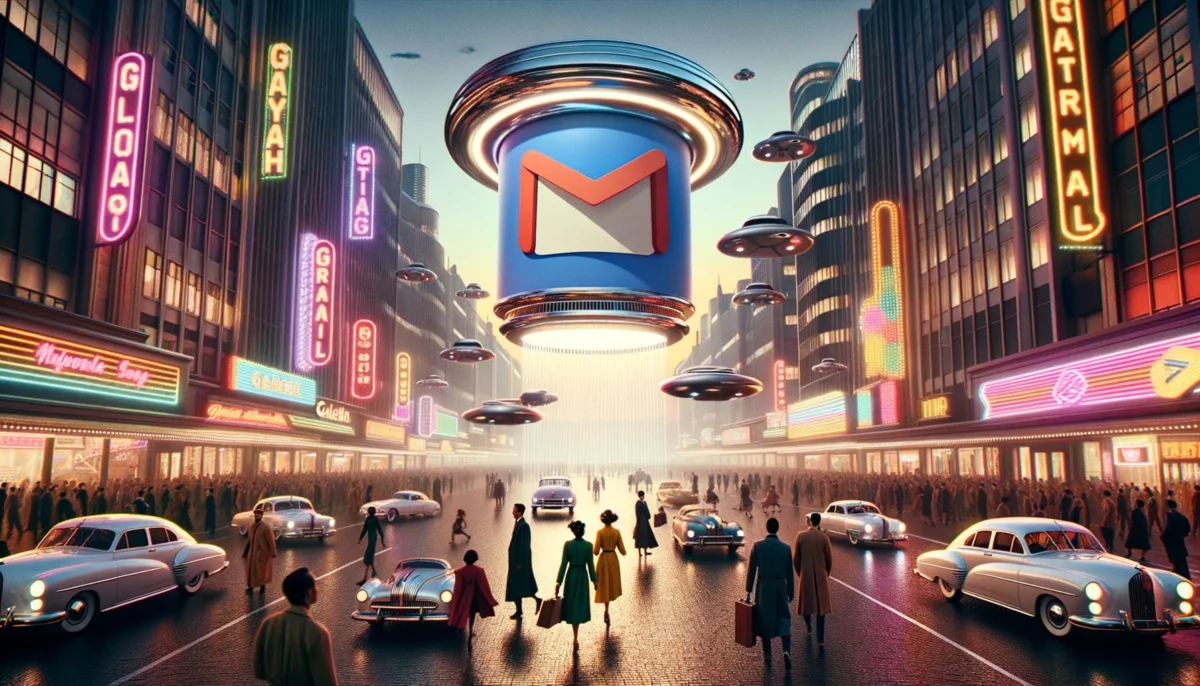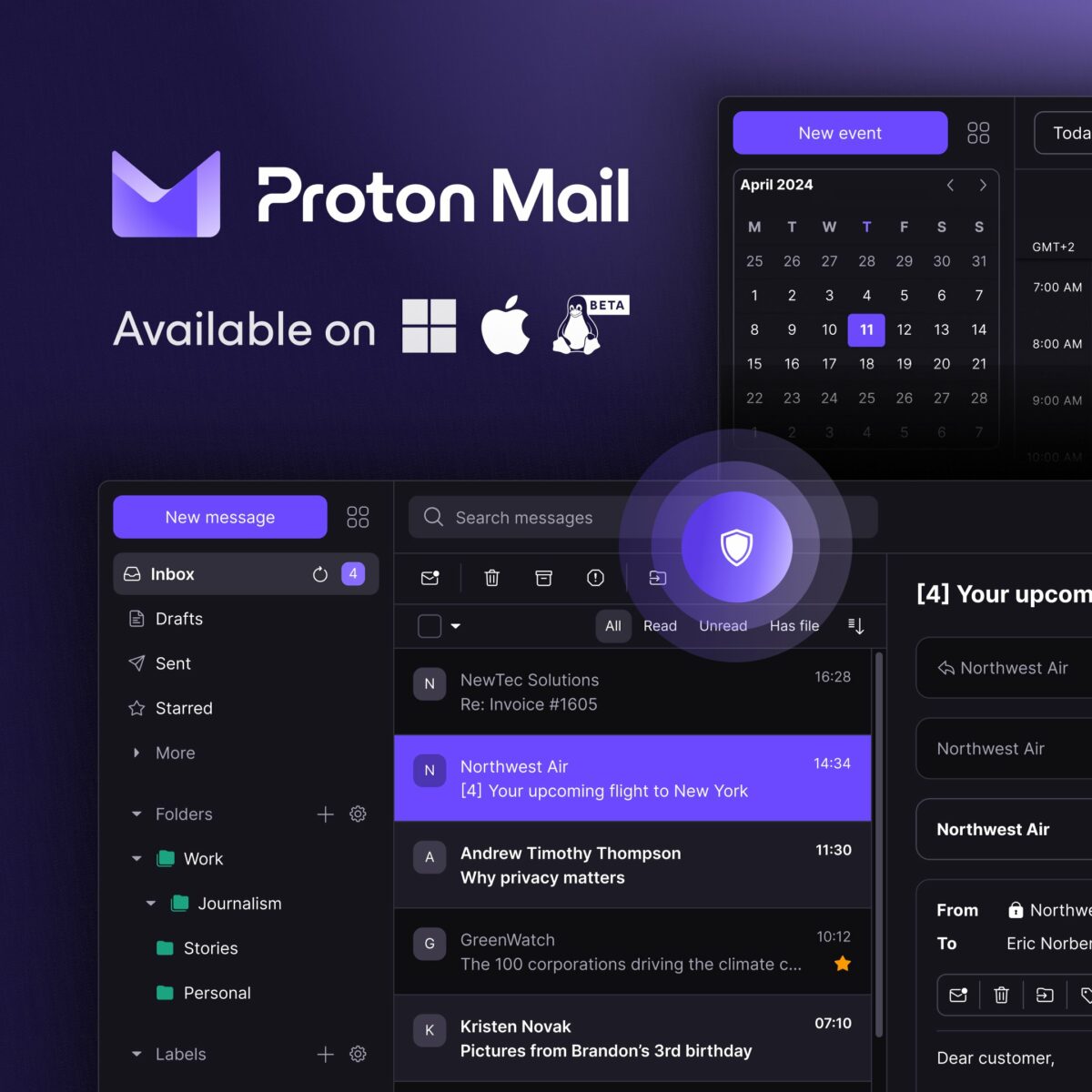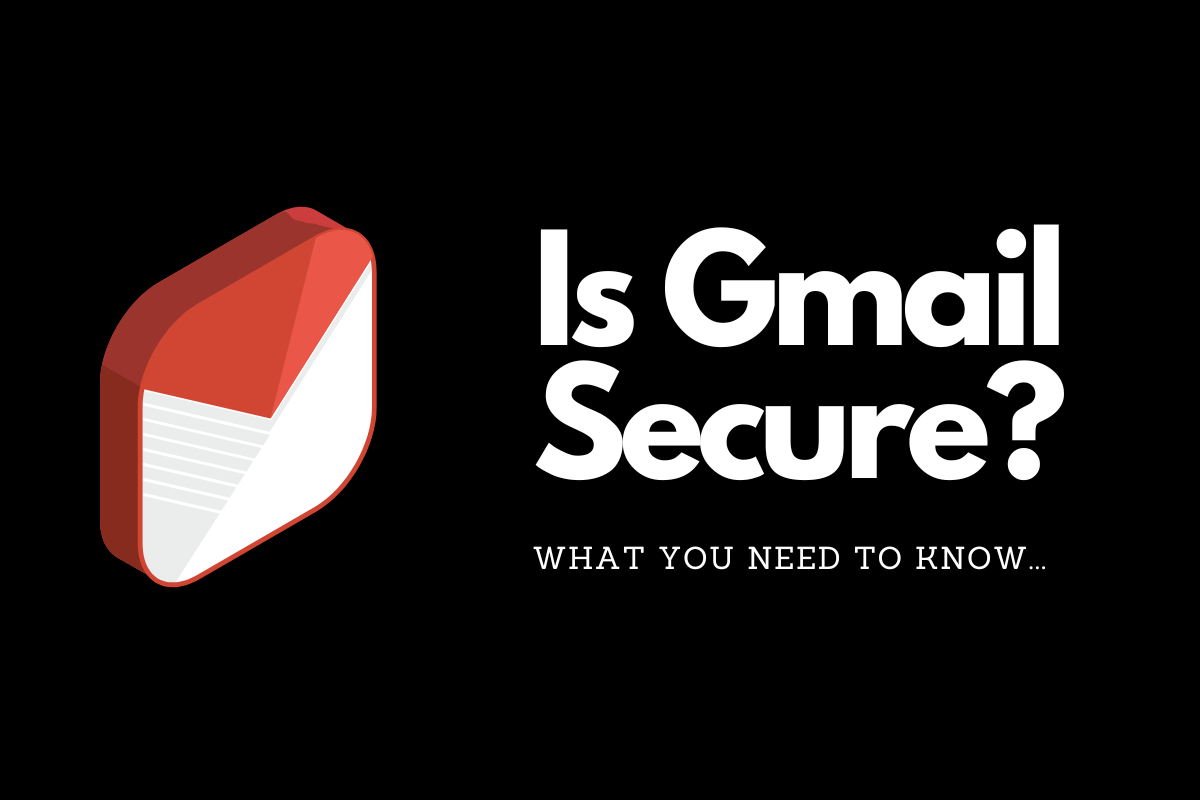When it comes to email services, Gmail is undoubtedly one of the most popular choices. With over 1.8 billion users worldwide, it’s no surprise that many people trust Google’s email service for their personal and professional communications. But is Gmail as secure as you think it is? Let’s take a closer look.
Gmail is now so large, so all encompassing that if you use another email platform – Yahoo or Outlook – you are looked at like some kind of weirdo. Google has, at last count, almost 2 billion active Gmail users. And Google doesn’t charge for Gmail usage, either – it is free at the point of access.
As you’ll discover below, there’s a very good reason for why Gmail – as well as all of Google’s other products – are free.
But before we get to that, we must first tackle the elephant in the room: is Gmail secure? Seeing that it is owned and operated by Google, you’d assume it was. It is to an extent, but it is no way near as secure as it should be…
Gmail’s Encryption: Not Quite End-to-End
Gmail does use encryption to protect your emails, but it’s not the most secure type of encryption available. Google uses TLS (Transport Layer Security) encryption, which secures your emails while they’re in transit between servers.
However, once your emails reach the recipient’s email service, their security is no longer guaranteed.
Google holds the encryption keys to your emails stored in your account which means Google can access your emails, meaning it can read them and use them to build data around you, and even hand them over to third parties, such as advertisers or governments, if required.
True end-to-end encryption, where only you and the recipient can read the emails, is not a standard feature in Gmail. But you get this level of encryption with secure IM apps like Signal. Not Gmail, though. So why is that?
Gmail and Privacy: Google’s Business Model

Most people think Google is a search engine. Android springs to mind when others think of the company. Or, Gmail. Others just think of it as a big technology company that does a little bit of everything.
All are partially correct, but they all miss the main bit: Google is an advertising company. This is its bread and butter, the reason it generates hundreds of billions of dollars each and every quarter.
In order to be a good advertising platform, you need data and no other company, with the exception of maybe Meta, collects more information about its users than Google. Gmail is just one of the tools Google uses to build “profiles” about you for its advertisers.
Even though Gmail can protect you from some outside threats, as an email provider, it also wants to gather data from your messages. After initially employing real humans to read user emails, Google started using bots to scan emails and collect valuable information about users.
In the past, Google has also given their partners full access to users’ Gmail account emails. It wasn’t just bots but real human beings from other companies who were reading Gmail users’ emails without their knowledge.
NordVPN
While Gmail is a convenient and feature-rich email service, Google tracks your online activities and shares your personal information with advertisers to serve targeted ads.
Although Google claims to have stopped scanning emails for advertising purposes in 2017, the company has been caught allowing third-party developers access to users’ emails.
Google continues to let hundreds of outside software developers scan the inboxes of millions of Gmail users who signed up for email-based services offering shopping price comparisons, automated travel-itinerary planners or other tools. Google does little to police those developers, who train their computers—and, in some cases, employees—to read their users’ emails, a Wall Street Journal examination has found.
Additionally, Gmail still scans your emails to enable smart features, such as automatic replies and flight notifications, unless you explicitly opt out.
From a privacy perspective, this is very much a no bueno situation. And the worst part? I’d argue a good 95% of Gmail users have no idea that any of this is even going on. When was the last time you read the terms and conditions of your last OS update?
Is Gmail Secure from Hackers?

Google does implement various security measures to protect Gmail accounts from hackers. However, no system is entirely foolproof. Since Gmail is not end-to-end encrypted, it is technically possible for Gmail data to be intercepted if Google’s servers were compromised.
The security of your individual Gmail account also depends on how you set it up and use it. Using a strong, unique password, enabling two-factor authentication, and being cautious of phishing attempts can significantly reduce the risk of your account being hacked.
Steps to Improve Gmail Security
While Gmail’s default security settings may not be as robust as some users would like, there are steps you can take to enhance the security of your account:
- Use a strong, unique password and consider using a password manager.
- Enable two-factor authentication (2FA) for an extra layer of protection.
- Be aware of phishing attempts and avoid clicking on suspicious links or providing personal information.
- Utilize Google’s Security Checkup to monitor your account for any suspicious activity.
- For business users with eligible Google Workspace accounts, consider enabling enhanced encryption (S/MIME).
Gmail Alternatives for Enhanced Security and Privacy

By now, you’re probably both worried and slightly concerned. I mean, literally everybody assumes their email is private. Now that you know it isn’t, the next obvious question is this: are there any secure alternatives to Gmail?
The good news is that, just as there is a business for harvesting your data and selling it to advertisers, there is also a business for privacy-minded people that want to protect and keep their personal data private, away from Big Tech’s prying eyes.
And the best option right now? Proton Mail and Tutanota. I’ve tested both and while they’re both completely secure and private, using end-to-end encryption, I believe Proton Mail, with its slickly designed UX, is the most comparable to Gmail from a purely user perspective.
If you want the closet possible experience to Gmail, just without all the snooping, go with Proton Mail.
Proton makes switching from Gmail or Workspace to Proton Mail super simple as well; you can do the entire thing with just a few clicks, using its migration tool.
Proton Mail offers end-to-end encryption for all emails, ensuring that only you and the intended recipient can read your messages. Additionally, Proton Mail is based in Switzerland, which has some of the strictest privacy laws in the world.
Other features that make Proton Mail a more secure choice include zero-access encryption, the ability to send password-protected emails to any email address, and a commitment to no tracking or logging of user activity.
Final Thoughts
While Gmail is a popular and convenient email service, it may not be as secure as you think. Google’s business model relies on user data, and the lack of end-to-end encryption means that your emails could potentially be accessed by third parties.
If you value your privacy and want to keep the content of your emails private, you’re going to have to switch away from Gmail to something like Proton Mail or Tutanota. You’ll have to pay for these, but the payment is a small price to pay versus the alternative – your personal data being exposed and, potentially, sold to third-parties to target you with adverts.


